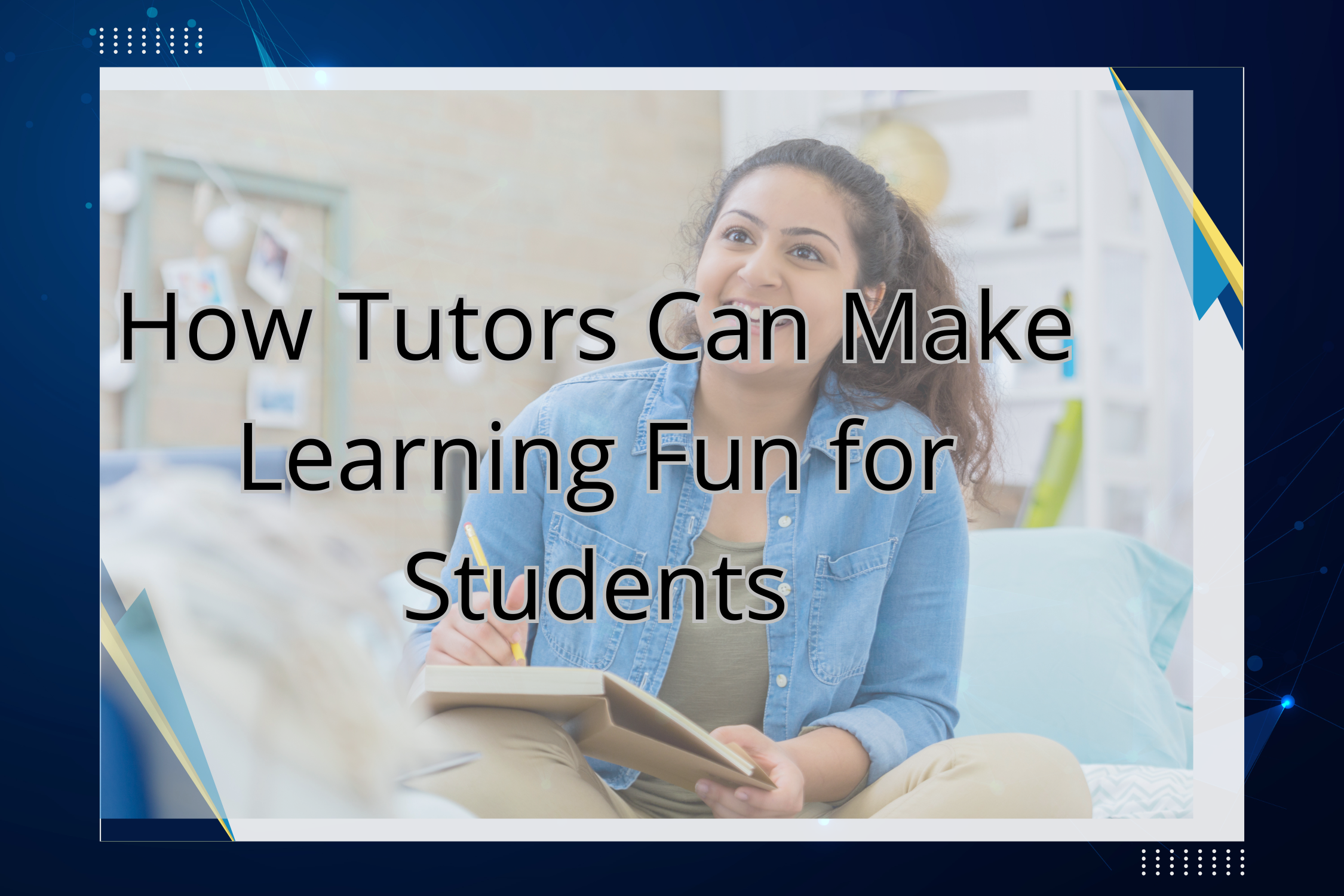Learning should not feel like a chore—it should be an exciting journey where students feel curious, confident, and eager to explore new ideas. For many children, especially in school, lessons can sometimes feel repetitive or stressful. That’s where tutors play an important role. By bringing creativity, patience, and enthusiasm into their teaching, tutors can turn learning into a fun and rewarding experience.
In this blog, we will explore different ways tutors can make learning enjoyable while still ensuring strong academic progress.
1. Understanding the Student’s Learning Style
Every student is different. Some understand better by listening, some by seeing, and others by doing. As a tutor, the first step to making learning fun is to figure out how your student learns best.
- Visual learners enjoy diagrams, charts, and colorful notes.
- Auditory learners like discussions, stories, and verbal explanations.
- Kinesthetic learners understand better through hands-on activities and experiments.
By matching your teaching style to the student’s learning style, you make lessons easier and more enjoyable.
2. Turning Lessons into Games
Games are a great way to capture attention and keep students interested. Even complex topics can be simplified into fun challenges or competitions.
- Math Bingo for practicing numbers and equations.
- Word Puzzles for vocabulary building in English.
- Flashcard Challenges for quick revision.
When students learn while playing, they remember the concepts better and enjoy the process.
3. Connecting Lessons to Real Life
Students often ask, “Why do I need to learn this?” If they can’t see the purpose of a lesson, they lose interest. That’s why tutors should connect lessons to real-life situations.
For example:
- Fractions in math can be taught through pizza slices.
- Grammar in English can be taught through everyday conversations.
- Science concepts can be explained using things around the house.
This practical approach makes learning more meaningful.
4. Using Technology and Multimedia
In today’s digital age, students are naturally drawn to screens. Tutors can use this to their advantage by including technology in lessons.
- Educational videos and animations to explain tough topics.
- Interactive quizzes to make revision exciting.
- Apps for vocabulary practice or math drills.
When technology is used wisely, it adds variety and excitement to tutoring sessions.
5. Encouraging Creativity
Tutors should encourage students to think beyond textbooks. Creative activities make learning feel less like an exam and more like a discovery process.
- Story writing to improve English.
- Drawing and labeling diagrams in science.
- Role plays to practice speaking skills.
Creativity helps students develop confidence and a love for learning.
6. Breaking Big Goals into Small Wins
Large tasks can feel overwhelming for students. Breaking them into smaller, achievable goals keeps them motivated.
For example, instead of saying, “We have to finish the entire chapter today,” a tutor can say, “Let’s finish these three short topics first.”
Every time a student achieves a small goal, they feel successful—and this success pushes them to keep going.
7. Using Positive Reinforcement
Praise and encouragement go a long way in making learning fun. When students feel appreciated, they try harder.
- Give genuine compliments for effort and progress.
- Use stickers, stars, or small rewards for achievements.
- Highlight their strengths along with areas for improvement.
Positive energy creates a comfortable environment where students are not afraid to make mistakes.
8. Changing the Learning Environment
Sometimes, simply changing where and how lessons happen can make them more enjoyable.
- Have a lesson outdoors for a change of scenery.
- Rearrange the study table with colorful stationery.
- Use whiteboards or sticky notes instead of only notebooks.
A fresh environment can refresh the student’s mind and increase focus.
9. Involving the Student in Decision-Making
When students have a say in their learning, they feel more responsible and interested. Tutors can:
- Let students choose which topic to start with.
- Ask how they would like to revise a lesson.
- Encourage them to bring their own examples to class.
This makes the learning process more personal and engaging.
10. Building a Connection Beyond Academics
A good tutor-student relationship is built on trust and understanding. When students feel respected and supported, they enjoy learning more.
- Take a few minutes to talk about their hobbies or day.
- Show genuine interest in their opinions.
- Celebrate their achievements outside academics too.
When students feel connected, they are more open to learning.
Conclusion
Making learning fun is not about avoiding hard work—it’s about making the hard work enjoyable. Tutors who adapt to a student’s learning style, use creative methods, and encourage participation can transform the way a student looks at education.
A fun learning environment not only improves grades but also builds confidence, curiosity, and a lifelong love for learning.
If you are a parent looking for a tutor, remember that the best tutor is not just someone who teaches well, but someone who inspires your child to enjoy the learning journey.




